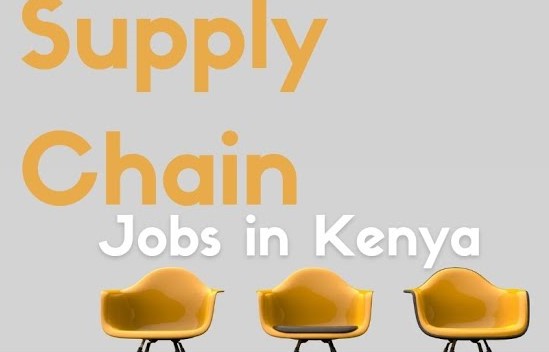Supply Chain as a profession
Where can one start when wanting to describe whether a profession is marketable or not? I personally had a challenge in choosing my specialization course in 3rd year.
Why?
I had studied commerce in high school, and definitely wanted nothing to do with sciences. In campus, after having a wild spin with Accounting, Finance and Banking, Marketing, HRM and Introduction to Procurement (Year 1 &2), I had to pick a specialization course. I knew I wanted a profession where salary was good and I won’t be confined to a desk the whole day, nor have to sell “ice-cream to Eskimos”. Nothing more, nothing less !!
So why did I settle on supply chain and how is it taking me?
Around 2008, there was a boom of supply chain opportunities in Qatar, South Sudan (Oil Industry to be exact) and other international companies with LUCRATIVE SALARIES.
But lo and behold, things on the ground were different after graduation. So before you embark on this journey, consider these aspects.
The key selling points for a profession to be considered marketable typically include:
- Demand: A profession is marketable if there is a high demand for it in the job market.
- Skillset: The profession requires a unique set of skills that are hard to find.
- Salary: Marketable professions often offer competitive salaries.
- Growth Opportunities: Professions that offer opportunities for career growth and advancement are considered marketable.
- Stability: Job stability is another important factor. Professions that offer stable employment are more marketable.
- Flexibility: In today’s world, professions that offer flexibility in terms of work hours and location are highly marketable.
- Impact: Professions that have a significant impact on society or an industry can also be considered marketable.
No, Not from CIPS, but CPSP-K.
Comparisons : If you can compete with CIPS, Understand The UK
Basic Aspect to Consider
| Aspect | Kenya | UK |
|---|---|---|
| Professional Body | Kenya Institute of Supplies Management (KISM)1 | Chartered Institute of Purchasing and Supplies (CIPS) |
| Market Characteristics | The local supply market is characterized by weak competition and is heavily influenced by government interventions2 | The UK has a robust infrastructure and a well-established network of suppliers and distributors |
| Recognition | KISM is a national body for professionals in the practice of procurement and supply chain management in Kenya1 | CIPS is an internationally recognized qualification in procurement and supply |
| Development | Kenya is considered a leading trade and logistics hub in Africa due to its unique geographical location, well-trained workforce, and infrastructure3 | The UK’s supply chain industry is more mature and has a more competitive market |
| Regulations | Kenya has recently unveiled a new set of procurement rules to regulate the profession4 | The UK has a well-established set of regulations governing the supply chain profession |
Now let us scratch the surface: Ask yourself, is supply chain marketable as a profession?
| Key Selling Points | Kenya | UK |
|---|---|---|
| Demand |
A boom in uptake of courses, even children want to procurement officers, but for the wrong reasons. There have been research suggesting that there may be less supply chain specialists in Kenya, but this in relation to managing the tender process. We have over 60k graduates, about 8k registered with KISM and people can tarmac for upto 3 years. Job uptake in the government is slow, many people have been interviewed but not absorbed. It is NOT your potion, I pray you get your job immediately!! |
In the UK, the demand for supply chain professionals is high due to the country’s robust infrastructure and well-established network of suppliers and distributors |
| Salary (in GBP) | The average salary for a Supply Chain Manager in Kenya is KSh 1,606,206 per year, which is approximately £10,800. However, some Supply Chain Management Officer positions in the public sector offer as low as KSh 30,000 per month, which is approximately £200 per month or £2,400 per year. The highest salary for a Logistics Manager is KSh 206,000 per month, which is approximately £1,380 per month or £16,560 per year. | The average salary for a Supply Chain Manager in the UK is £38,798 per year. The lowest salary for a Supply Chain Specialist is £23,000 per year, and the highest salary for a Supply Chain and Logistics professional is £68,713 per year |
| Growth Opportunities | Opportunities for growth in sectors such as manufacturing, agriculture, and healthcare | Opportunities for growth in various sectors, including retail, manufacturing, and logistics |
| Stability |
Job stability can vary depending on economic conditions and industry trends. |
Job stability is generally high, especially for professionals with specialized skills. |
| Flexibility | Flexibility can vary depending on the role and the organization. | Many roles offer flexibility in terms of work hours and location, especially with the rise of remote work. The UK’s mature market allows for more flexibility |
| Impact | In Kenya, sustainable procurement practices have a positive impact on supply chain performance. The supply chain management practices significantly affect return on investment2. Kenya’s strategic location and growing economy also make it a leading trade and logistics hub in Africa4 | In the UK, the supply chain profession plays a vital role in the country’s economy. The UK’s robust infrastructure and well-established network of suppliers and distributors make it a global leader in supply chain management |
Please note that the specifics can vary based on factors such as industry trends, economic conditions, and individual skills and experiences.
As a former lecturer, I had the privilege of engaging with students from various backgrounds and learning experiences. One question I would start with every new class was, “Why did you choose to study supply chain and logistics?”
The responses were always interesting and full of anticipation, which allowed me to comprehend their perception of the profession. Many students believed that the field was solely focused on Tender Management, which, in reality, is just one aspect of the entire supply chain and logistics process. But honestly, what do job requirements expect of you?
I was eager to enlighten them about the other endless possibilities that the profession had in store for them. Fields like Reverse Logistics, Supply Chain information systems, Green Supply Chain, and consultancies are some of the numerous career paths one can explore in this profession. But are these courses offered in the universities? Can you specialize?
To have a better understanding of the profession, it is recommended to break down the terminologies “Supply chain + Logistics” and further analyze the common activities and functions involved.
The next step is to consider specific industries’ needs and skill set requirements, including but not limited to Food and agriculture, Academia, Manufacturing, and service.
Lastly, it is advisable to assess the profession’s maturity within the area of interest, including purchasing, procurement, or sourcing, and what job market profiles are required. As an aspiring Supply Chain Manager, one must be adept at directing or coordinating production, purchasing, warehousing, distribution, or financial forecasting services or activities to limit costs and improve accuracy, customer service, or safety.
Examining existing procedures or opportunities for streamlining activities to meet product distribution needs and directing the movement, storage, or processing of inventory are some fundamental aspects of the job.
Sample of reported job titles:
Global Supply Chain Director, Material Requirements, Planning Manager, Solution Design and Analysis Manager, Supply Chain Director
Consider the relevant paths to obtaining certification :
Will a diploma, undergraduate, graduate or Masters degree suffice?
Do I have to double with a different minor e.g engineering or statistics or information and technology?
Are there professional certifications required? CPSP-K, Logistics Board Kenya and CIPS.
Next question? Which university and course? Look out for our article answering this question soon.
Join Our Community Here
Verdict:
Overall score
- Sector, Company can give good salaries
- Specialization – Many unexplored areas, can boom with relevant support
- Networking – Who do you know?
- Plan on leaving the country or being a consultant? There is room






